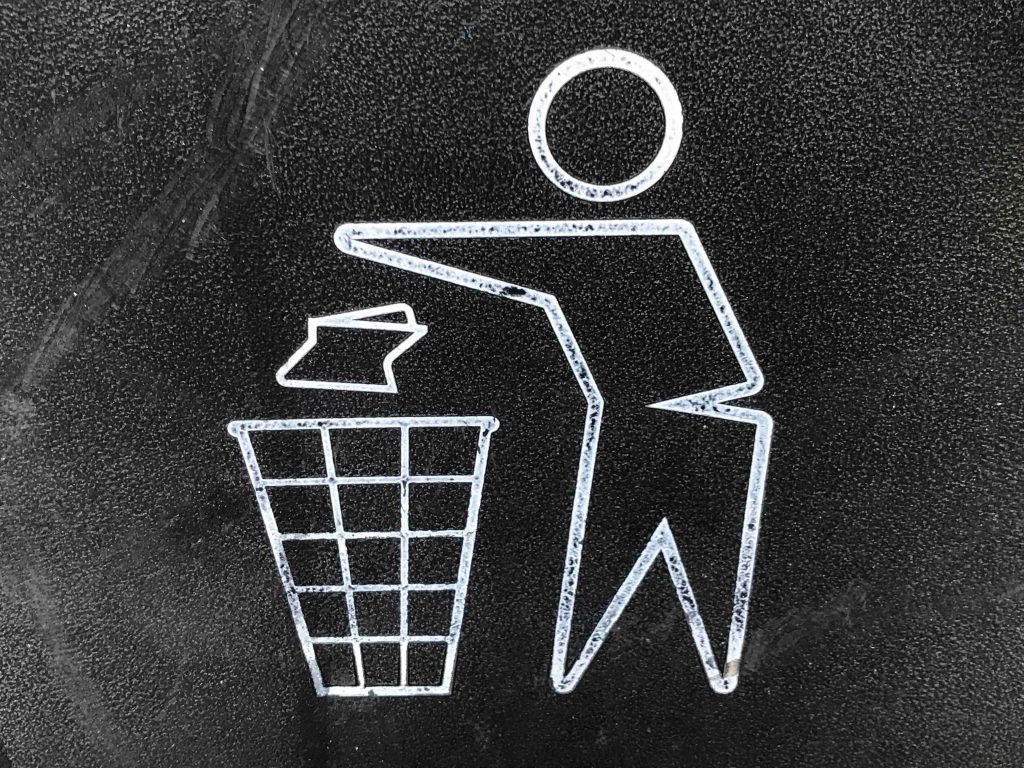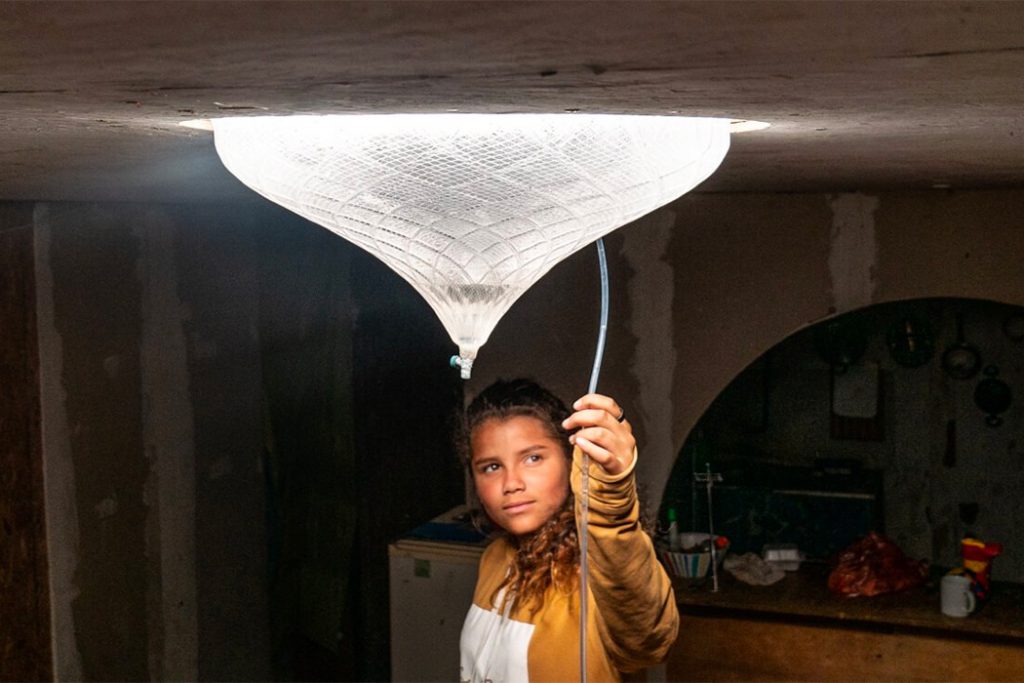Howdy 👋
It seems the first quarter of every year is the time when the most number of Seed and Series A deals happen. My buddy launched a wooden credit card that plants trees for every transaction and raised $5M, Ampaire got acquired for a suspected $100M and David Energy raised a total of $19M between debt and equity…
Big money moves that should result in big climate impact. If you’re running a startup or investing in startups shoot me a note so we can look into analyzing the space and problem your working on and feature your fundraise!
– Swarnav S Pujari
In Your Inbox: Circular economy overview; low cost desalination system to solve water insecurity; Bitcoin and the Climate

Manufacturers have produced 8.3 billion metric tons of plastics over the last 60 years. In the last four decades, global plastic production has quadrupled. If this trend continues, plastic manufacturing will make up 15% of greenhouse gas emissions by 2050.
If that wasn’t enough, 14% of plastic is collected for recycling globally, with the rest ending up in landfills and oceans. As a result, we are seeing an increased amount of microplastics end up in our ecosystems.
We need to look at solving this problem by stopping plastic waste being created in the first place. This means eliminating plastic we don’t need and reusing/recycling all the rest. By designing out plastics for new goods and keeping current plastic in the economy, we keep it out of the environment.
Below is a walkthrough of innovations I believe are at the forefront and leading change in industry.
Around 1.45 billion metric tons of agricultural waste is produced annually. This waste creates opportunities for feedstocks for biopolymers and compostable packaging.
Great Wrap is developing PHA-based products from food waste, where they can achieve 60-70% conversion of food waste into product. They are diverting 100,000 tons of food waste from landfill to create 50,000 tons of wrap, with the other 50,000 tons being used as energy via anaerobic digestion. At the end of the lifecycle, the product is marine biodegradable, home compostable, and soil and landfill biodegradable.
No matter how well we design out plastic waste, there will still be the issue of collecting and sorting recyclables.
At the trash receptacle, CleanRobotics is creating a robotic trash can by combining next-generation robotics and sensor technology to automatically sort recyclables from everyday trash. With just 2 TrashBots, they can sort 30,000 items with 90% accuracy, whereas conventional sorting is only 30% accurate. This diverts 1,800 lbs or recyclables from going to landfill, compared to 650 lbs with conventional bins. According to the EAP, for every ton of recyclables diverted, you divert a ton of carbon dioxide – 2 TrashBots can offset 5 tons of carbon dioxide, which is equal to taking one car off the road for a year. Beside carbon reductions, our TrashBots save 1,500 gallons of water each.
At the facility level, Zabble has developed a zero-waste management platform that: 1) helps universities and hospitals monitor their waste streams within their buildings, and 2) automates invoices received from the haulers to extract service levels, costs and any anomalous charges. They help customers create campaigns to reduce contamination, find alternatives to generate less waste and stay on top of their waste bills and service levels with real-time analytics.
From a city service perspective, ALBA W&H Smart City provides refuse and recyclables collection services. In addition to collection services, ALBA W&H developed app called STEP UP Sustainability to stay on track with NEA’s environmental target of reaching 70% recycling rate by 2030. The STEP UP Sustainability App rewards users with green bonus points, known as CO2 points for their recycling efforts. CO2 points represent the amount of CO2 emissions that one could save through recycling actions.
The last piece is accounting for the end of lifetime of these products. Innovative startups are integrating circularity via chemical recycling.
Arqlite is a recycling technology company developing high-efficiency materials made 100% from plastic waste. Their recycling system can process non-recyclable plastics, providing an eco-friendly solution at a competitive price to landfill fees. The idea is to take the best plastic polymers to create desirable properties, like being light, durable, elastic and inert, and then we turn that into a product.
One other startup innovating on the chemical recycling/processing side is mobius. mobius is integrating with existing supply chains to connect the dots between waste generators and manufacturers who are otherwise taking petroleum based or natural gas-based materials to make consumer products. They look at organic waste as a composite of four building blocks: proteins, fats, sugars and lignin. Mobius is specializing in developing and building a portfolio of technologies to convert those building blocks/waste components into chemical and material building blocks, such as polymers, specialty chemicals that are made from waste.
Solutions are needed to solve the problems of an increasing amount of plastics and lack of recycling. What makes matters worse are the global dynamics of plastics and recycling.
China has cut off imports of all but the cleanest and highest-grade materials. Because of their purity standard is challenging to meet, as many as 111 million tons of plastics will have to find a new place to be processed or disposed of. For perspective, prior to China’s ban, 95% of the plastics collected for recycling in the European Union and 70% in the US were sold and shipped to Chinese processors.
To add to the current economy, it’s cheaper for plastic manufacturers to purchase oil to manufacture virgin plastics, rather than purchasing recycled plastic. Also, it’s cheaper to send everything to landfill, rather than recycling.
These factors just accelerate the need for solutions and adoption of new technologies.
Governments can step in to incentivize recycling, similar to what ALBA W&H has done.For instance, Los Angeles has artificially inflated by 400-500%, making the cost differential between trash and recycling an incentive for good practices.
Land use is another driver for policy changes. As a land is a scarce resource, in some countries landfill rates have spiked, as they don’t have enough space.
Lastly, people are pressuring CPG companies/producers to take responsibility. Many organizations have committed to the Ellen MacArthur Foundation’s common vision for a circular economy for plastic, through the Global Commitment and the Plastic Pact network.
Within the next few years, we will see advancements in plastics and the circular economy. It is just a matter of scale, adoption, and timing.
Sign up for The Impact and learn the perspectives behind the latest sustainability trends

In a world where water is one of the most abundant resources, how is it possible that roughly 663 million people are without access to clean drinking water? New Zealander, and 2021 Lexus Design Award Finalist Henry Glogau, has developed a multi-purpose, low-cost desalination system, overhead light, and energy storage system.
With seawater funneled directly into an ornate fixture, solar energy is used to separate the salt from the water, creating a pool of water that can be accessed through a tap on the fixture, while brine contained in the system to later be used as a battery to power a low-energy light.
Water insecurity is a problem plaguing much of the world. With 663 million people having no access to clean drinking water, a low-cost solution to provide a basic resource can significantly uplift the quality of life in many coastal regions of the world.
Glogau’s solution, while simple in design, can have tremendous impacts globally. From a humanitarian perspective, coastal countries with fresh-water scarce populations benefit greatly from this technology. However, it also shows that significant improvements can be made in the industry.
With water now traded as a commodity in the wake of climate change, innovation in the sector will be crucial to maintain an affordable global water supply. More advancement in the vertical is necessary, and desalination will play a vital role in the human ecosystem.
We’ve been working on testing the best ways to interact with you all and hear your opinions on the topics we cover.
Engage with us on Twitter:
Writers: Swarnav S Pujari, Daniel Kriozere, Matthew Morris
If you aren’t absolutely thrilled with The Impact, reply and let us know why. Or you can unsubscribe from all updates by clicking here.
Copyright © The Impact 2021. All Rights Reserved || 19 Morris Ave, Bldg 128, Brooklyn NY 11205
Develop your market map of up-and-coming climate startups and market opportunities by subscribing to our weekly newsletter for free.